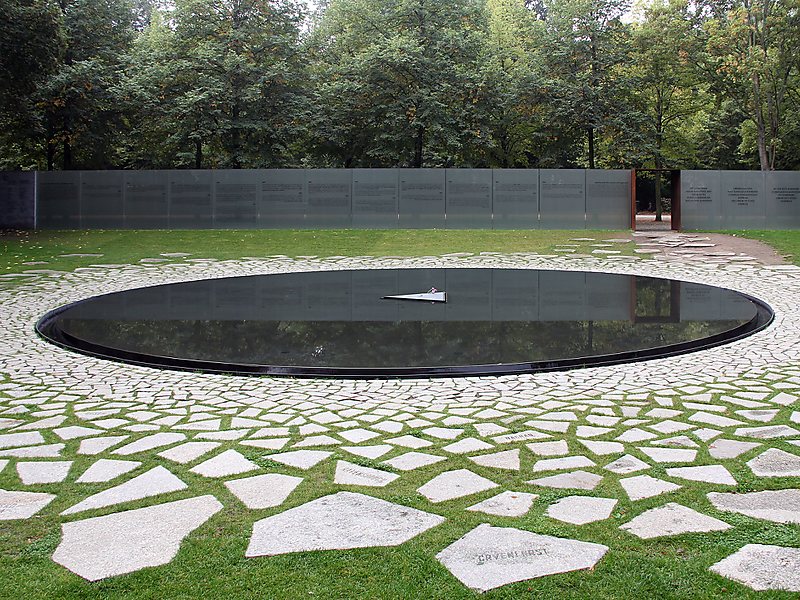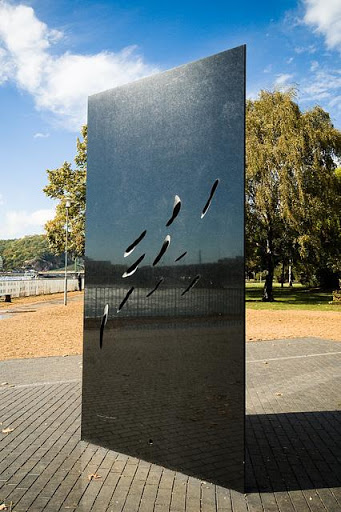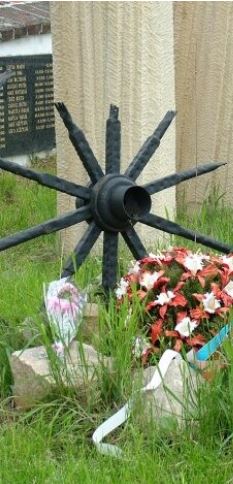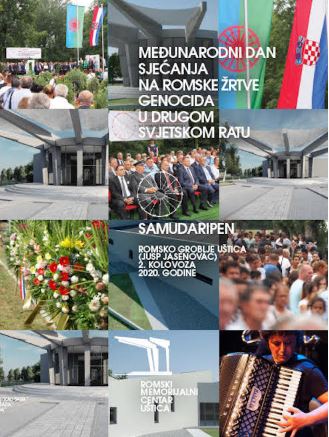LIVE BROADCAST
photo: Artur Conka
Remember Us: Commemoration of the Romani Genocide
2 August 2020, 17:00 EST (UTC −04:00), Virtual Event
On August 2, 2020, Romanipe, in partnership with the Montreal Holocaust Museum, will host its fifth annual commemoration of the Romani Genocide. The public is invited to virtually attend and learn more about the organized murder of Roma and Sinti peoples by the Nazis and their collaborators during World War II. The event will consist of Romani Genocide survivor testimony, commentary from historians, and the firsthand testimony of a Holocaust survivor who witnessed the experiences of Romani during World War II.
August 2nd has been designated by Romani populations across the world as the day to commemorate the Porrajmos, or genocide of the Romani during the Nazi occupation of Europe. On this date in 1944, the last remaining 4,300 Roma and Sinti imprisoned in the so-called Zigeunerlager, or “Gypsy Camp” were murdered in the gas chambers at Auschwitz-Birkenau. The most recent estimate indicates that at least 500,000 Romani were murdered by the Nazis and their collaborators during World War II. Today, this history remains largely forgotten and unacknowledged.
Join us on Facebook (the Museum and Romanipe’s pages) on August 2nd to commemorate the Romani Genocide, learn about the stories of survivors and remember the victims: https://www.facebook.com/events/200641257994279
We Call on the Canadian Government to Recognize the Romani Genocide
Let us Act. Two years ago, on August 2, 2018, after years of hard work and dedication by Romani organizations and individuals, the Canadian government issued a statement in remembrance and recognition of the Romani Genocide. Despite this achievement, Canadians are still awaiting an official Act of Parliament to recognize the Romani Genocide and affirm the government’s commitment to combatting anti-Roma racism. We call on the Canadian government to respect its commitment without hesitation or delay, while taking this next historic and symbolic step in honour of history and memory.
Canada is in a unique position to take a stand against anti-Roma rhetoric and crimes. Our country’s leadership in this domain would play a crucial role in building a culture of understanding and acceptance. In light of recent events, including the anti-racism movements occurring across the world, as well as Canada’s commitment to IHRA and to the fight against racism, Romanipe strongly believes that the adoption of an Act of Parliament in recognition of the Romani Genocide would be an important gesture affirming Canada’s commitment to this issue.
“The government’s announcement two years ago was a hugely significant step in acknowledging the often-overlooked and ongoing history of Romani suffering,” expressed Dafina Savic, Founder of Romanipe. “We now ask that the government fulfill its commitment by passing an Act of Parliament, which would officially recognize the Romani Genocide. This is a crucial step in not only recognizing the persecution of Roma and Sinti by the Nazis and their collaborators, but also of combatting their ongoing discrimination today.”
A lack of recognition and awareness of the Romani Genocide has contributed to ongoing segregation, persecution, and violence. Currently, few countries in the world officially recognize the genocide. “While this commemoration is a meaningful opportunity to gather and learn about the persecution of Romani peoples during the Holocaust it is crucial that the years of remembrance and efforts from Romani civil society lead to official recognition,” stated Daniel Amar, Executive Director of the Montreal Holocaust Museum.
For more information on how to act, please visit our Facebook page @Romanipemontreal and Twitter @Romanipe
Commemorative Events

Commemoration in Berlin
Memorial to the Sinti and Roma of Europe murdered under National Socialism, Berlin (DE), 2 August 2020, 21:00 CET

24 hours commemoration in Budapest
Nehru Part, Budapest (HU), 1 August 2020 17:00 CET – 2 August 2020 17:00 CET

Commemoration at Lety u Písku, Czech Republic
LIVE BROADCAST on Sunday, 2 August 2020, at noon CET

Concerts on the occasion of the opening of the Roma Memorial Center “Uštica”
LIVE BROADCAST on Sunday, 2 August 2020, 10:00 and 21:00 CET

Commemoration in Vienna
Ceija Stojka Platz, Vienna (AT), 2 August 2020, 16:00 – 18:30 CET with LIVE BROADCAST










